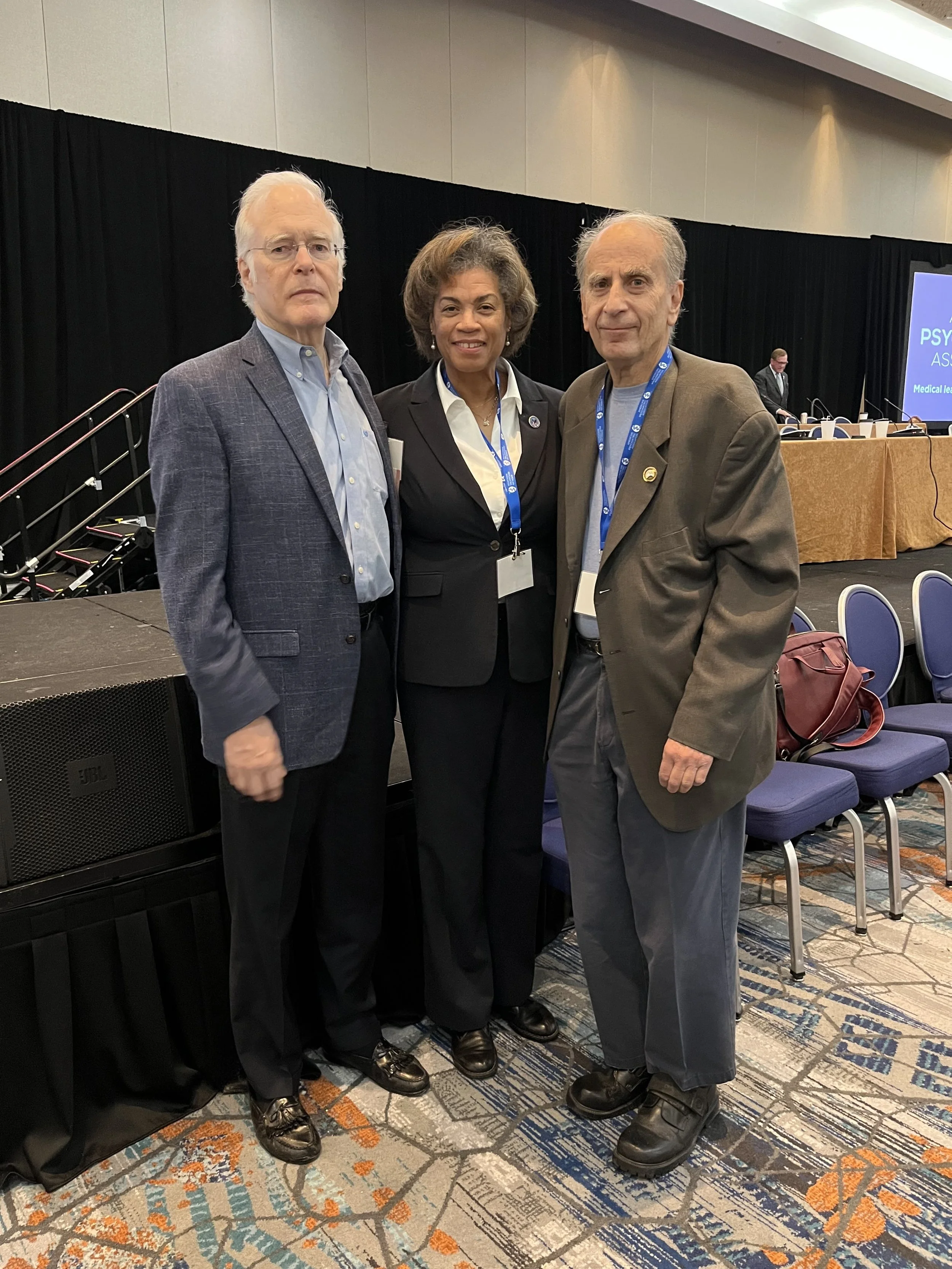Electronic Winter 2023 | Issue 57
Fall Assembly Honors Veterans and Service Members
By: Kenneth Busch, MD and Arden Barnett, MD
A top priority of all Americans is to ensure that our Veterans and Service members and their families and caregivers have the resources they need to lead full lives and thrive in their communities.
We are deeply committed to addressing the mental health issues that impact them and help establish connections to needed care and services.
At the APA Fall Assembly in Baltimore it was an absolute privilege to warmly welcome Dr. Tamara Campbell to speak to us on the particular stresses and mental health challenges that face Veterans.
Dr. Campbell is the Executive Director of the Office of Mental Health and Suicide Prevention for the U.S. Department of Veterans Affairs and serves as APA Assembly Representative from Ohio. Her office works nationally to improve the quality and availability of a full continuum of behavioral and mental health services and monitors and supports the implementation of mental health policies.
The VA's suicide prevention program is guided by the 10-year National Strategy for Preventing Suicide and further informed by the White House Reducing Military and Veteran Suicide Strategy. This strategy focuses on current actions that can be taken now and across the next decade.
Veterans mental health services are delivered across a continuum of care, ranging from self-help apps to outpatient care, residential treatment, and acute inpatient programs. This approach is based on recovery through evidenced based treatment.
A new mission statement recognizes the VA's commitment to care and promise to care for those who have served in our nation’s military and for their families, caregivers, and survivors. Care is accessible virtually wherever they live or work. The VA Workforce Diversity Committee focuses on improving inclusion, diversity and equity in the workforce.
A whole health approach is a priority for VA mental health care. This includes expansion from disease management to a whole health system of care focused on what matters most to the Veteran. It is based on integrating whole health across mental health and primary care. It includes peer support, coaching, well-being programs, and complimentary and integrative health approaches. Some of the goals include reduction of opioid use as well as increased engagement and sense of purpose.
VA facilities have either a PTSD Clinical Team or a PTSD Specialist to ensure Veterans have access to evidence-based treatment for PTSD. Some of these treatments include prolonged exposure, cognitive processing therapy, medication, accupuncture and yoga.
For Veterans in crisis there is free, confidential support 24-hours daily by dialing 988 and accessing option #1.
Dr. Campbell received a resounding applause from her colleagues in the Assembly for her loyalty and commitment in leadership role nationally to help our Veterans. We thank Dr. Campbell for her contributions and service and for such an outstanding presentation.
We also honored our dedicated Veterans and Service members in the Assembly and roundly thanked them for their devotion, loyalty, and courage.
It was a particular moment in time to honor our colleagues who have served or are serving, putting their lives at risk to protect our nation.
There are no words to fully express how grateful we are for their sacrifice. We deeply appreciate them and thank them so much for placing their lives on hold and for the service they have provided to our country.


